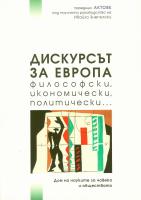
We kindly inform you that, as long as the subject affiliation of our 300.000+ articles is in progress, you might get unsufficient or no results on your third level or second level search. In this case, please broaden your search criteria.


The present study is about the impact of Sufi literature onthe emergence ofthe emancipated Media in Iran. Literature was the most powerful media, when there was not television, radio and internet. As, media is an important tool for maintaining the legitimation of regimes, rulers were trying to make a powerful control on poetry and poets. Economic conditions, publishing and distribution situation and the other limitations were the reason of poets’ dependence on the rulers. The emergence ofSufiliteraturewas asthe balance ofpower inmedia. Sufi poets were so powerful, so they did not have to obey the rulers. Sanaee was the first raised Sufi poet that freed poetry from ruler’s control and balanced the power of Media.
More...
In order to contextualize the theme discussed in this article is presented briefly the historical development of educational sciences from the Didactica Magna to Postmodern Didactic, then localized reconstruction of contents in Didactics of specialty between discursive strategy and argumentative performance. Reconstruction of contents by reported to the idea of didactic transposition, the main theme of discussion of this article, is analyzed in relation with didactic speech, which has the role to put into practice in the classroom the idea of didactic transposition. Didactic speech, mediated by computer, is a current reality at the present time, as generalization in the educational process. Reconstruction of contents is placed on the axiomatic background of curriculum paradigms because changing paradigm has the effect of change the architecture of didactic speech to present in classroom the scientific contents reconstructed by didactic transposition. Finally, some conclusions are presented.
More...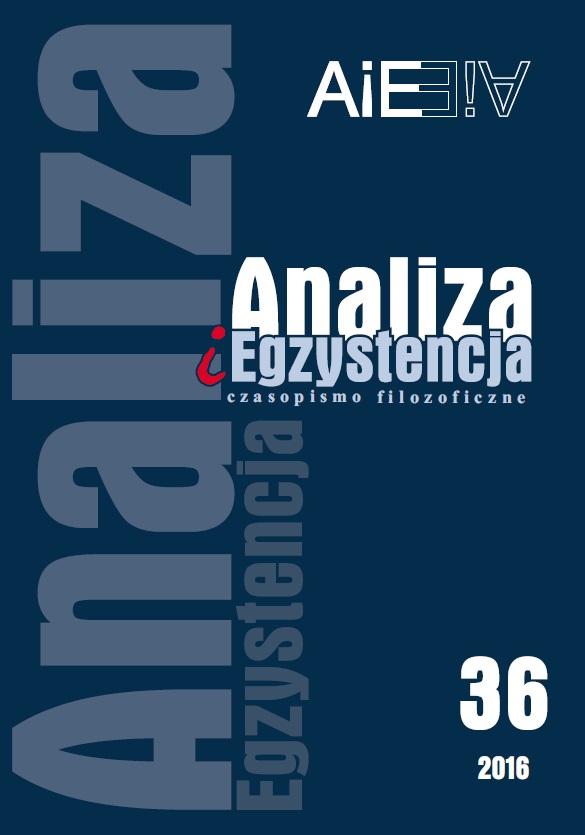
The aim of this paper is to examine whether there is any possibility to compare the value of someone’s existence with his nonexistence. The final conclusion is that such a comparative evaluation can never be made in a meaningful and valid manner. Nobody can know as well whether he would be better off or worse off created than he would have been had he never existed.
More...

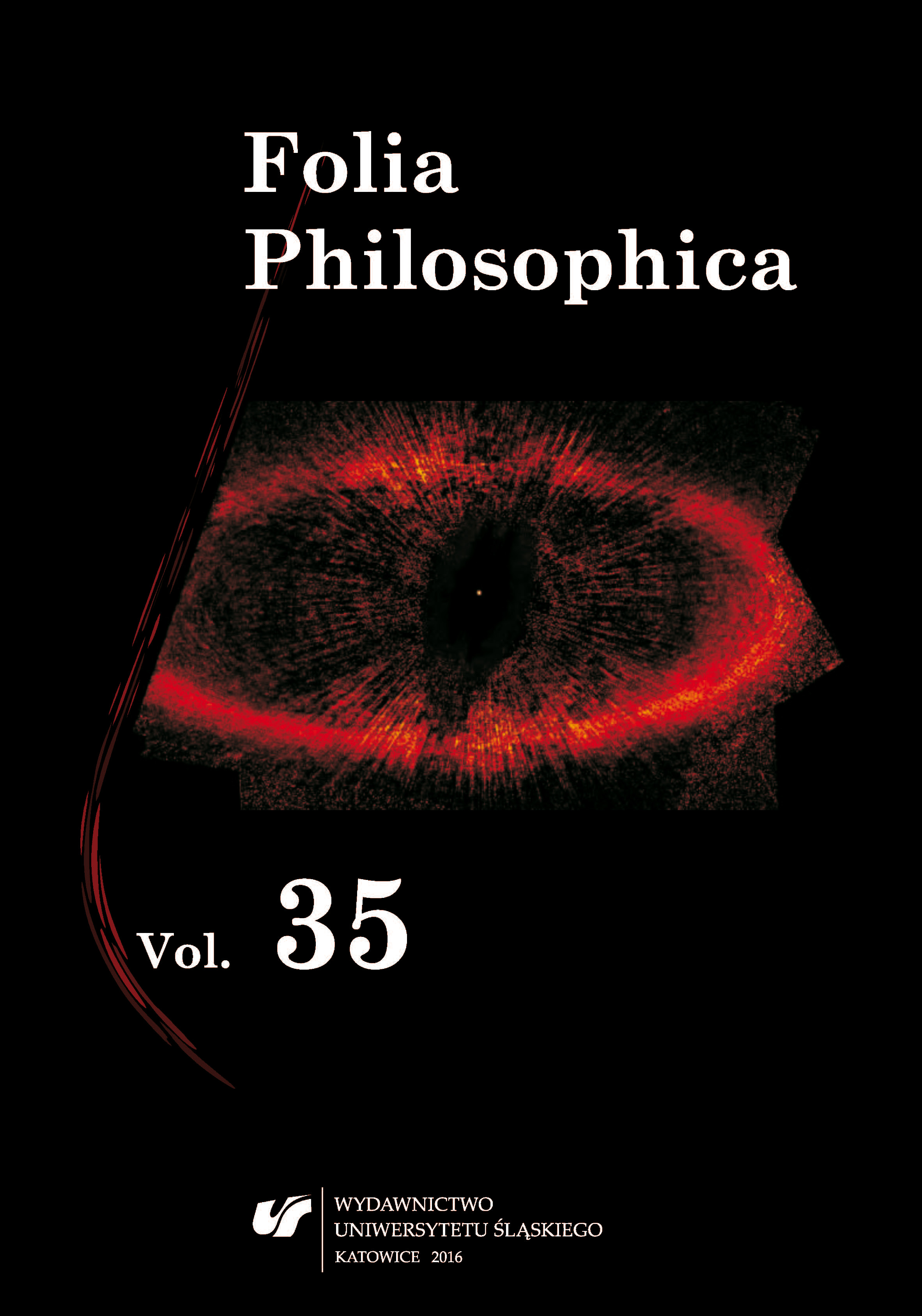
The paper outlines the problem of knowledge in Russian Neo-Kantianism in the broad sense of the term. It presents briefly views held in this respect by Russian thinkers who are considered representative of the so-called academic and non-academic Neo-Kantianism. The author also refers to the ideas of the “Russian Marburger” Nicolai Hartmann in the context of Vasily Seseman’s views. It turns out that the views of the Russian philosophers frequently show interesting similarities to the ideas of German Neo-Kantians. Such is the case with the thesis of the indissolubility of science and knowledge, proclaimed by Boris Jakowienko and Bruno Bauch, Semyon Frank’s and Heinrich Rickert’s theory of judgments, as well as the views of Alexander Vvedensky and Johannes Volkelt concerning the possibility of metaphysics. The article proves that the themes present in the concepts of “late” German Neo-Kantians earlier prevailed in Russian philosophy, where ontologism took a leading position. The author also discusses the impact of phenomenology on the revival of ontology in Neo-Kantianism.
More...
Although the connections between Frege’s and Russell’s investigations are commonly known (Hylton 2010), there are some topics in their letters which do not seem to have been analysed until now: 1. Paradoxes formulated by Russell on the basis of Frege’s rules: a) „»ξ can never take the place of a proper name« is a false proposition when ξ is a proposition”; b) “A function never takes the place of a subject.” A solution of this problem was based on the reference/sense theory and on the distinction between the first- and second-level names (Frege). 2. The inconsistency in Frege’s system may be avoided by the introduction of: a) a new kind of objects called quasi-objects (Frege); b) logical types (Frege and Russell); c) mathematics without classes (Russell); d) some restrictions on the domain of function (Frege). 3. Since the inconsistency is connected with a class, what is class? In one of the letters, Frege compared a class to a chair composed of atoms. This approach seems to be similar to the collective understanding of a set (Stanisław Leśniewski). 4. Russell doubted that the difference between sense and reference of expressions was essential. Hence, Frege found some additional reasons to distinguish between them: semiotic, epistemological, from identity, and from mathematical practice. This discussion can be seen as a next step in developing the theory of descriptions by Bertrand Russell.
More...
The aim of this paper is to show that responsibility arises from an existential dimension of the human being and therefore an existential depth is a necessary condition of undertaking or rejecting responsibility. Linking ethical and existential dimensions has an application in the process of psychotherapy, beginning with M. Boss, to I.D. Yalom. Both of them applied the philosophical issues of M. Heidegger’s thought. Yalom isolated the area of problems and medical conditions, and put forward a thesis that they arise from the existential depth of Dasein; thus, assuming or escaping responsibility brings consequences for mental health. Following such indications, one may find oneself on a ground of one’s own responsibility. In this paper, it will be shown that if one deals with existential issues, one may answer to human problems during the process of psychotherapy, and might approximate oneself to authenticity, which means prosperity, well-being and integration of personality. I hope that the following paper will be a contribution to polemics and treatment not only among psychotherapists but also among the milieu of philosophers.
More...
The article presents a research on development features of professional and pedagogical culture in the process of volunteering activities of future specialists in socionomic sphere. Social problems escalation and absence of the system providing service to the most vulnerable sections of the population caused the appearance of the voluntary movement. The participation of young people in volunteer work gives them the opportunity to make personal contribution to the solution of social problems, to test their capabilities by taking part in projects and social programs. The level of professional pedagogical culture of future specialists of socionomical professions is determined with forming professional and personal qualities. After all, professional pedagogical culture, as a synthesis of the competences and professional qualities, is an important indicator of a highly qualified specialist
More...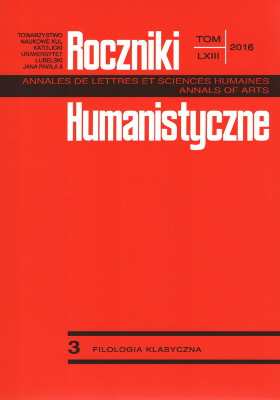
In this paper I discuss the problem of the role of female in Aristotle’s theory of inheritance described in De generatione animalium, book IV, chapter 3. Although in the books I-III Aristotle presents his well-known view that the male contributes form and the principle of movement whereas the female only matter, in the much discussed chapter IV 3 we are told that the offspring is shaped by the „movements” (kineseis) of both parents; these „movements”, contained in the „semens” (spermata) are derived from various potentials (dynameis) of organism’s nature, and function as specialised vehicles for transmitting the parts of the parent’s heritable form during the act of reproduction. In the paper I try to prove that the term spermata in this chapter denotes both male and female reproductive residues, and the matter contributed by the female (katamenia) contains potentially the nutritive soul with a set of „movements” responsible not only for the development of the female sex and the inherited accidental, material features, but also of the universal, i.e. the common form of the species.
More...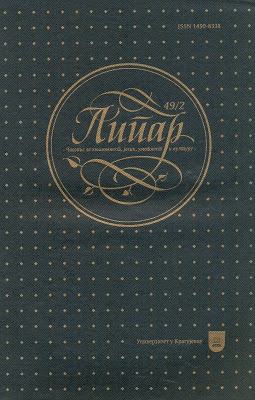
The present paper strives to analyse the works and ideas of three authors F. M. Dostoevsky („Legend of the Grand Inquisitor“), Simone Weil (The Need for Roots), and Stojan Steve Tesich (On the open road) in the light of their struggle for reviving man’s primordial forms of conscience and consciousness which will help humanity regain ability to resist religious and ethical mutations of the present era. These authors believe that the official religious institutions of Christian church, having cast away Christ’s gospel of brotherly love, have sided with “Him”, (as voiced and testified by Dostoevsky’s Grand Inquisitor) the Satan himself, who tempted Christ in the desert by offering him rule over “kingdom of earth” in exchange for Christ’s submission. Scientific humanism coupled with Christianity’s betrayal of eternal values posited by Christ has stripped man naked of the religious context which gave his life meaning, leaving him/her free falling in the abyss of nihilism. Weil suggests, which is one of her major ideas in The need for Roots, that the cure to the moral plight of modern European humanity resides in its ability to bring back “the spirit of truth”, love and grace into modern Christianity, which is in its present state devoid of these evangelical virtues. Weil and Dostoevsky’s ideas are shared by Steve Tesich, a Serbian-American screenwriter, playwright and novelist, whose play On the open road is based on Dostoevsky’s „Legend of the Grand Inquisitor“.
More...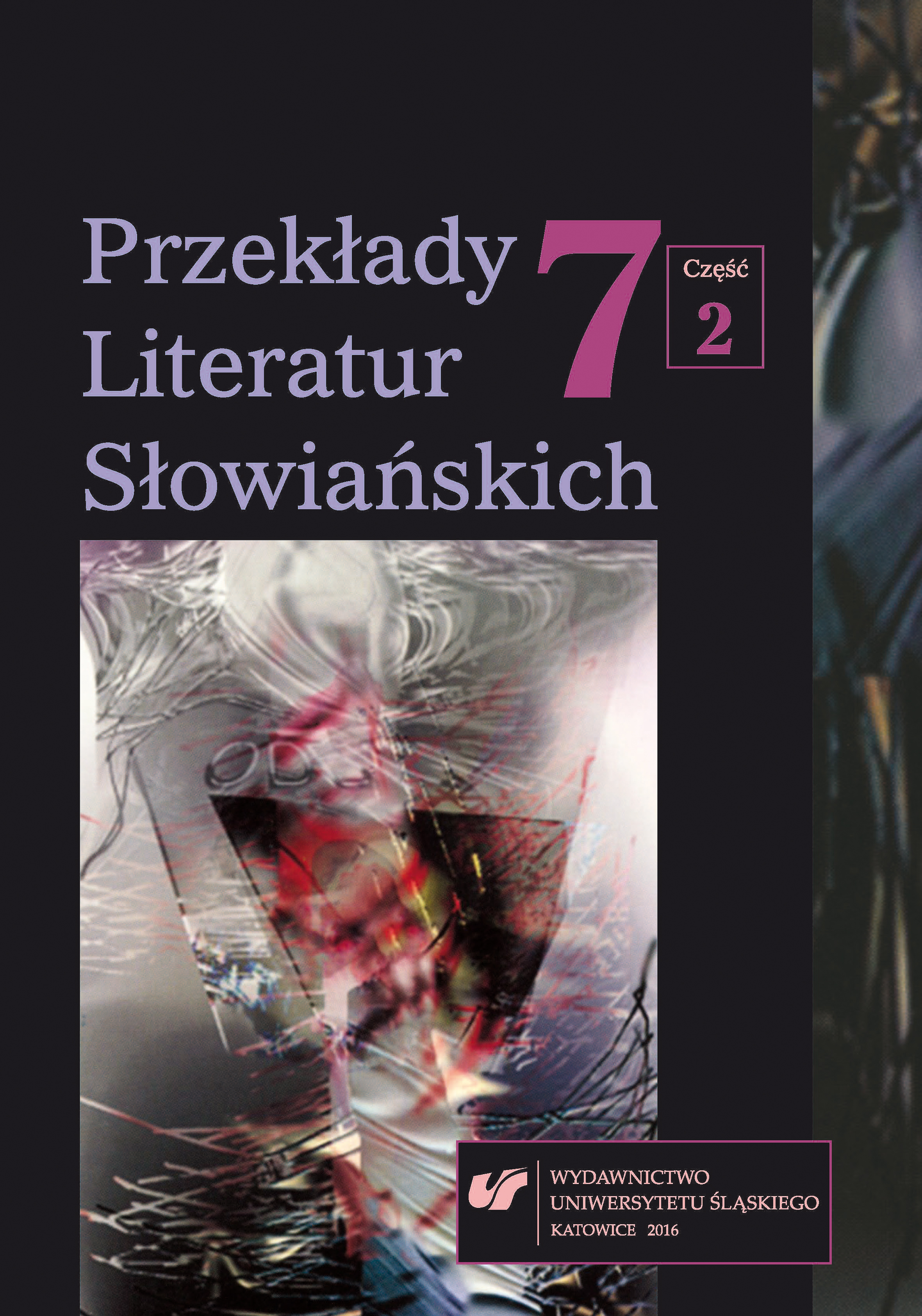
This article focuses on the dissemination of Slovenian literature in Polish by the Rafał Wojaczek’s Institute in Mikołów between 2012 and 2015. The author approaches the role of publishers in promoting literatures that are viewed from the Polish perspective as marginal using Pierre Bourdieu’s theory of social fields. She points to the mechanisms and motivations of both the publisher and the translators, addresses issues related to graphic design, and examines the impact of paratextuality.
More...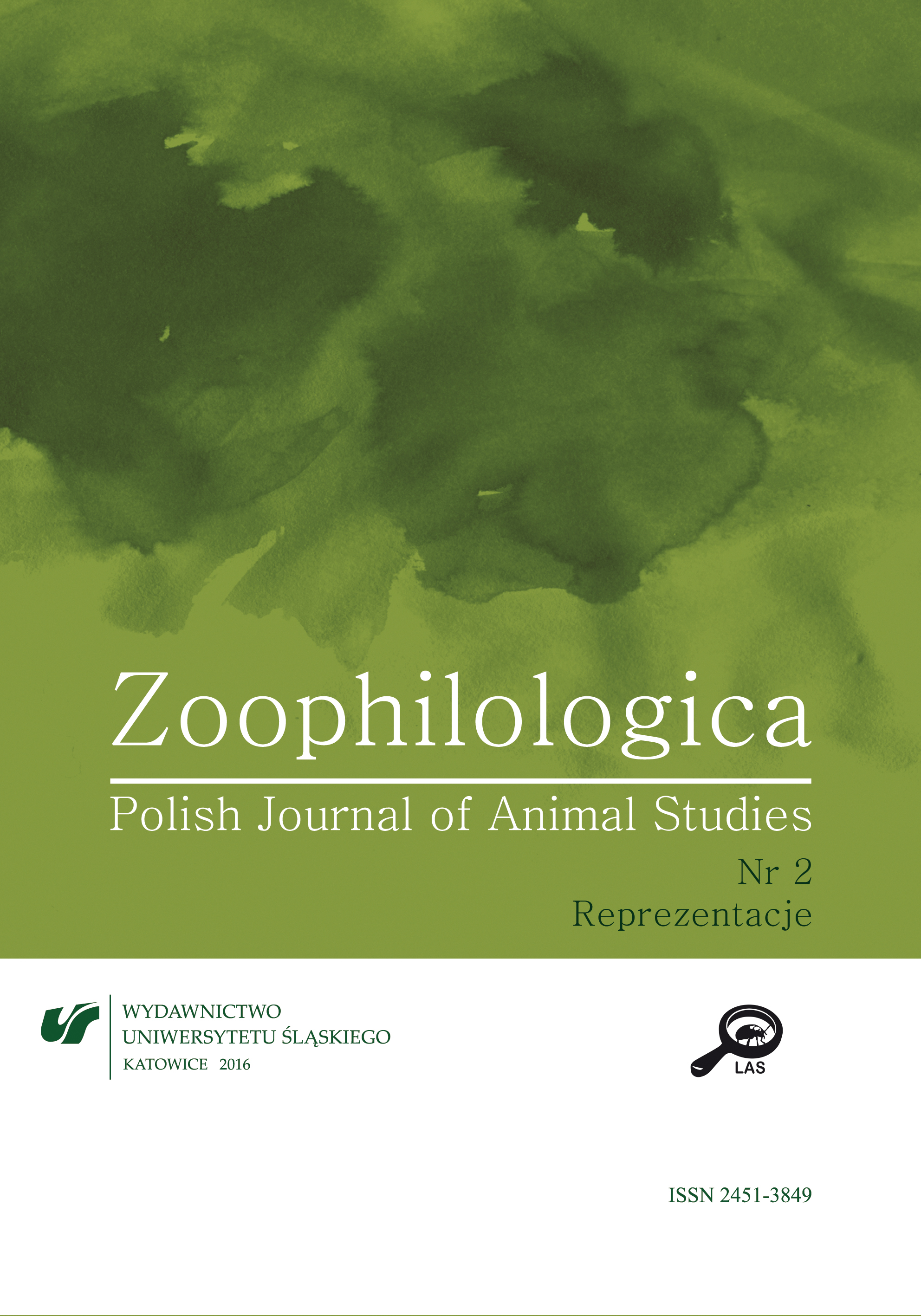
The article is devoted to the literary representation of the wolf, and the texts analysed include Hermann Hesse’s “Steppenwolf” and Mark Rowlands’ “The Philosopher and the Wolf”. In both texts the wolf becomes the mirror in which the man’s inner life is reflected, and the authors search for the answers to existential questions in the wolfish nature. “And so the Steppenwolf had two natures, a human and a wolfish one. This was his fate, and it may well be that it was not a very exceptional one.” Those words of Hermann Hesse refer to the complicated, split personality of the main protagonist and the complex nature of every man. Harry is partly a man, who desires social respect and the comforts of the middle‑class life, and shares human ideas and interests, and partly a wild beast, who mocks these vain and absurd desires, and remains untamed and impulsive. Mark Rowlands’ wolf is not only part of the author’s inner self, but a wild animal, with which the American philosopher spent 11 years of his life. The wolf companion changes completely the man’s way of thinking, becoming an inspiration for philosophical considerations over the nature of love, death, happiness and humanity, the purposefulness of human actions, the sources of despair and hope, the nature of the fear of death. The wolf ’s company makes it possible for Rowlands to find his human nature, makes him eventually become a different person: of partly human and partly wolfish nature. In both cases the wolf (being either part of a man’s personality or a real wild companion) determines the protagonists’ lives and helps them understand themselves.
More...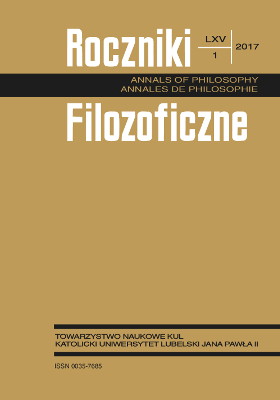
This article interprets Eckhart’s contradictions by presenting them as a result of an existential search for salvific power. It is shown that power is ambivalent in nature: it is the power of what is and the power of (self)overcoming (of what is). Just because power is in itself ambivalent and the process of searching for it existentialist (so not completely conscious), Eckhart’s mystical texts are full of contradictions and the German mystic is apparently not aware of it. The sample of them is shown in this article with regard to his ideas on God and man. Three other interpretations of Eckhart’s (“apophatic,” “educational,” “methodological”) are presented and argued against.
More...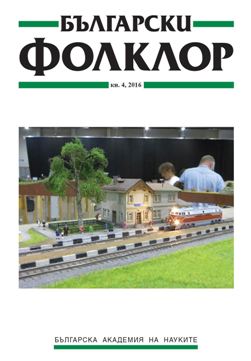
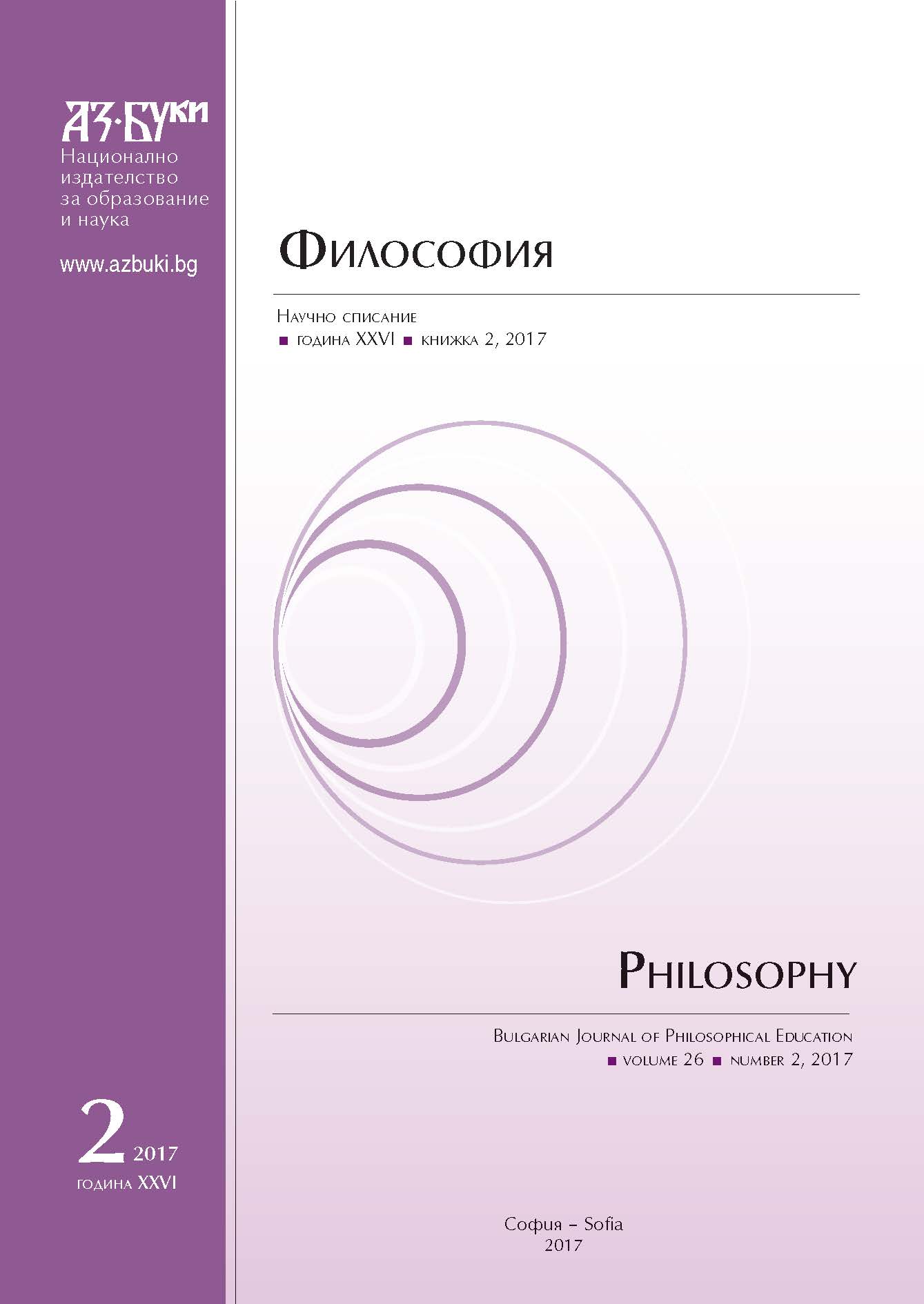
Human speech begins and ends within text. Human act begins and ends within speech. Thus text is not just a multifaceted model of the world, but it is also a model and a project of our own behaviour. The philosophical educational text bears the unique responsibility to introduce and internalise through itself the Logos of the youth. In addition, it must lead and introduce them to their own individual horizons. This is why this strenuous construction of the bridge between the predetermined indication and the horizon-based interpretations of the text is yet another methodical experiment – to achieve a state of synergy between the framed technological process and open improvization.
More...
The paper gives a bold outline of the interwar Bulgarian psychoanalytical interpretation of literature. The author of this study strives to fill in the shortages and gaps made by the researchers until now and concentrates on the contribution of some forgotten or little-known names. The research results maintain that these Bulgarian psychoanalysts share the common striving to use the doctrine equally as science and as hermeneutics.
More...
This article is dedicated to the anger and how it can every single person trapped by an this negative emotion to deal with it. The author reveals the the sinister side of the anger as an emotion which destroys the personal relationships, leads to aggressive behaviors and even violence can lead to cardiovascular diseases and serious and dramatic consequences such as emotional and personal stress and distress, depression, guilt, embarrassment, feelings of loss of control and lack of confidence in communicating with others. Here are some myths, а wide variety of methods and techniques for dealing with anger, based on the principles of the rational emotive Behavior Therapy in psychology.
More...